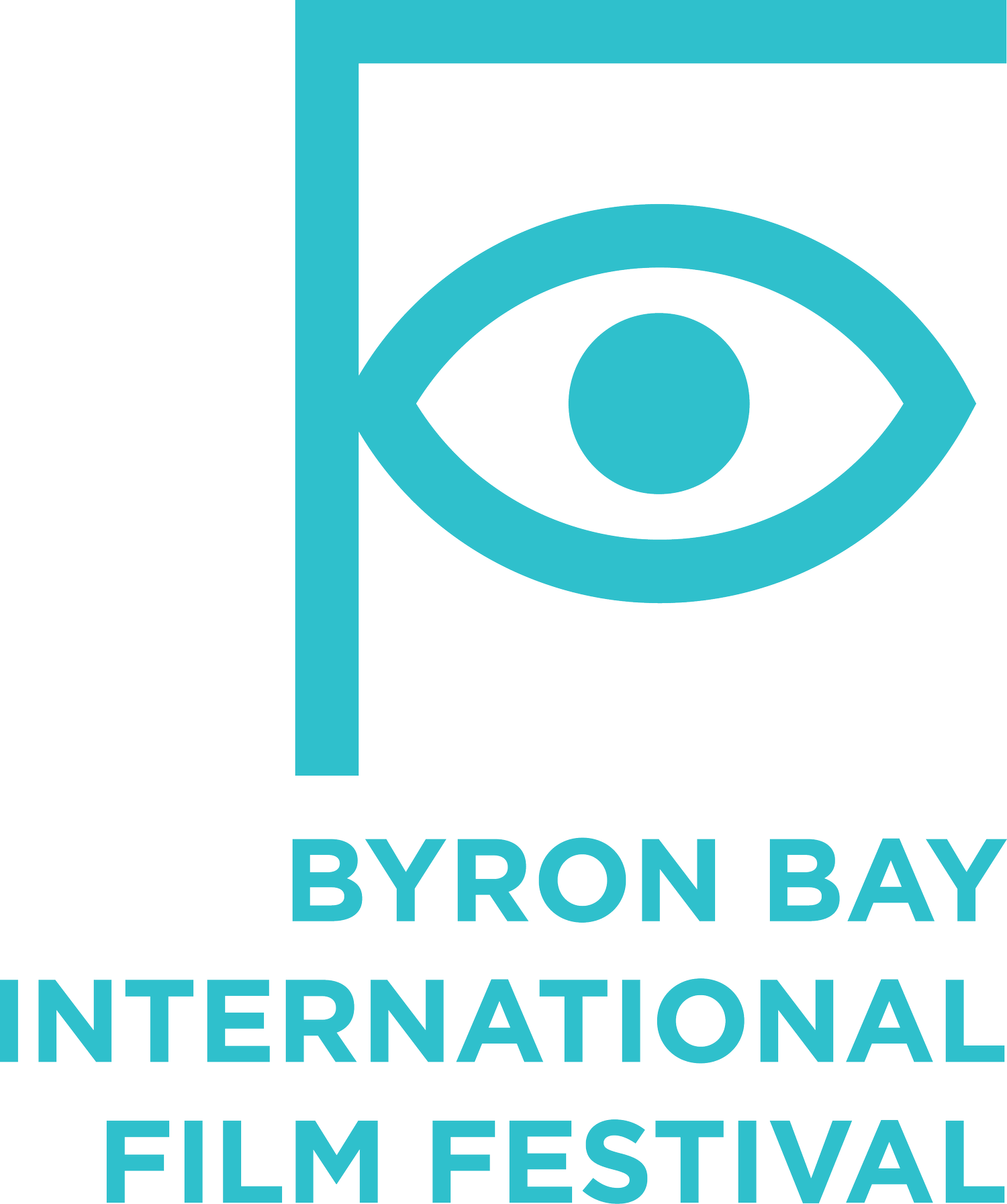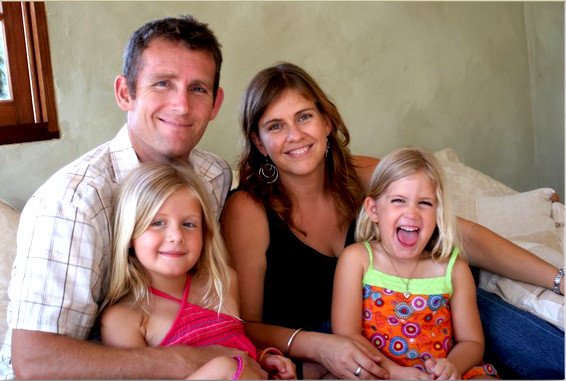BBFF2021 Meet the Filmmaker: Jim Stevens
Our 2021 opening night film, Meet the Wallers is a documentary following Lennox Head painter Mark Waller and his family over nearly 20 years.
While the Waller family is seemingly happy, living the middle-class life by the beach, filmmaker Jim Stevens captures the not so positive aspects of their lives - artistic obsession, money, the mortgage, mysticism, sibling rivalry, the neighbours, rapacious developers, depression, not to mention cancer.
We spoke to Stevens about his journey filming this epic saga and bringing the Wallers to the big screen.
Screening at Lennox Head Cultural Centre (BBFF2021 Opening Night Event)
Friday 17 December - doors open 6:30pm with the film commencing at 7:30pm
Buy lennox head tickets
Screening at Palace Cinemas Byron Bay
Sunday 19 December at 1:45pm
Buy byron bay tickets
Meet The Wallers was filmed over a period of nearly 20 years. Filmmaking is a labourious job; how did you remain motivated for so long?
My background as a long form documentary editor prepared me for this epic journey. It's an old truism, serious documentaries are made in the cutting room. It is a harrowing experience to go through, particularly for the director, because you never know how things will turn out and any script usually goes out the window from day one.
But with persistence, problems get resolved and a film is born. In this case it was the Wallers who kept me inspired. Deep down, notwithstanding the fear that goes with so many unknowns, I knew if I could just keep turning up on their doorstep, things might, just maybe, work out. And it has; the response to the film is beyond my wildest expectations. In fact, I didn't have any expectations by the end, just surviving the process was enough reward for me personally.
This is your first directorial credit since The Bad Society in 1977. How has your process evolved since working on Meet The Wallers?
This is my third film as a director. Danny and the Cougars is about a national league baseball team owned by a Japanese sports fanatic, commissioned by ABC TV and Bilby Brothers about two buddies saving the most adorable and threatened of species.
These productions were my training ground. It's a big stretch for an editor to become a director; you must deal not only with story but with the egos of crews, budgets, executive producers and the many landmines just waiting for you to step on. It can be a scary apprenticeship. So when Meet the Wallers came along, I was ready for the beautiful battle that lay ahead.
Cinematic technology is constantly changing. Did you experience many technical issues when filming this production over such a long period of time?
I started out shooting on borrowed handycams for the first few years and eventually started buying my own rigs progressing from mini DV tapes to digital formats. I had a camera slide off its tripod and break in half and another destroyed by salt and humidity in the Solomon Islands, not fun.
As software and computers kept evolving, it became an issue to keep up with the cost of technology. By the time I finally got into finishing post at Brisbane's Chop Shop, converting from FCPX to Avid and all the different formats, the real problems hit home, particularly with audio. However, with technology and wonderful professionals at the helm, you'd never know what a dog's breakfast it all was.
This documentary shows the raw, unfiltered life of a painter unrelentingly devoted to his art. As a filmmaker, do you find there are many parallels with your own life?
Yes. I live in a parallel universe alongside of Mark Waller. Everything he went through, including a serious health scare, so did I. My family and friends thought I was bonkers making this film, just as Nic did with Mark. I felt isolated and fearful at times thinking that they might be right. But I'd turn up at the Waller’s house or Mark's studio and all would be well in our little universe. Of course, now that the film is finished, family and friends think I'm a hero returning from a distant war zone they had no knowledge of or weren't in the least bit interested to find out anything about.
In creating this documentary, you’ve identified a number of meaningful outcomes you hope it will achieve, including increasing understanding of the struggle artists face to earn a living. Since its completion, have you found that Meet The Wallers has been generating awareness in this regard?
The film has just emerged from its womb and will be years circling the globe as a timeless story about art and marriage. Audience feedback from a handful of film festivals shows the need out there by artists and their long-suffering spouses to be acknowledged and understood; how life does inevitably get messy and that somehow, usually, we'll survive and live to see another day.
The film shows quite explicitly that out of adversity comes the seeds of equal opportunity. This frames the story as an uplifting and encouraging screening event.
Some of your goals include lobbying to have art included in STEM subjects at school. Do you have plans to make another film to help achieve this?
Our destiny is linked to mother nature and humans are rapidly losing this connection. As the value of ecosystems are traded for unrelenting economic expansion, the arts are now as critical as science to our wellbeing.
Mark Waller's paintbrushes connect us to beautiful land and seascapes, reminding us of what we have on this unique planet, what should be protected at all costs and it is a losing battle, ask any koala family. If I ever get to make another film, it'll be about someone trying to make the world a saner and more sustainable place.
You’ve stated that in contrast to highly manipulated ‘reality’ television shows, the Waller family exposes their lives in an unpretentious and truthful way. How has this been received by the local community, especially after the recent controversy of reality programmes like ‘Byron Baes’ attempting to infiltrate the region?
Audiences seem to love the sincerity of the Wallers who are a no BS family. So called reality TV is an abomination of trite and manipulated events, sort of a continuous dumbing down of its audiences where no bad taste is left unexploited. Don't get me started, no, get me started. Really Australia, can't you see past this mirage of fake?
With the rapid gentrification of the Byron Bay and Lennox Head areas as COVID-19 lockdowns prompted city dwellers to make a sea change, how do you think the local art and creative scene will be impacted over the long term?
Eventually, the coastline from Ballina to the Tweed will be almost a continuous strip, it's a developer’s paradise where dancing to the greed is good mantra is facilitated by local councils who appear to be in the pockets of shameless men who move in, take over and move on.
With population growth the film and TV industry will grow, big and small studios will flourish and tax dollars will attract international business and the Lennox Head that the Wallers grew up in will be just like anywhere, think the Gold Coast. The beaches will remain beautiful but shopping centres and suburban sprawl will blight the current landscape as jobs and more jobs are demanded to fuel lifestyles. It's a pitiful cycle but the film industry will flourish due to the sheer volume of numbers.
What were the biggest challenges when making this documentary?
The time it took to come to a conclusion. Also, because of the very nature of the production, with no end in sight and simply no guarantee of a quality outcome, funding couldn't possibly happen until the very end days and a $50K grant from Screen Australia, bless them.
Along the way, I was supported by some true believers with a little cash flow, however, what was once the biggest challenge, has now become the film's greatest asset. 20 years in the making is a rather unique selling point.
Now that Meet The Wallers has finally been completed, what will you do next?
Good point. I've run a marathon, survived unforeseeable events and feel in great shape to take on another film production, one where I have a crew and budget. I feel big stories choose us, at least that is my experience, so who knows. In the meantime, it's time to have fun with Meet The Wallers and make new friends from around the world.
With so many film festivals having transitioned to virtual screenings due to the COVID-19 pandemic, what does it mean for you to have this film showing in front of live audiences? Were there any other deciding factors in choosing to show the film at BBFF?
The COVID-19 pandemic has been disastrous for the performing arts and so, to be able to have a theatrical screening now, is wonderful. The BBFF team have been so professional, Meet The Wallers couldn't be in better hands.






